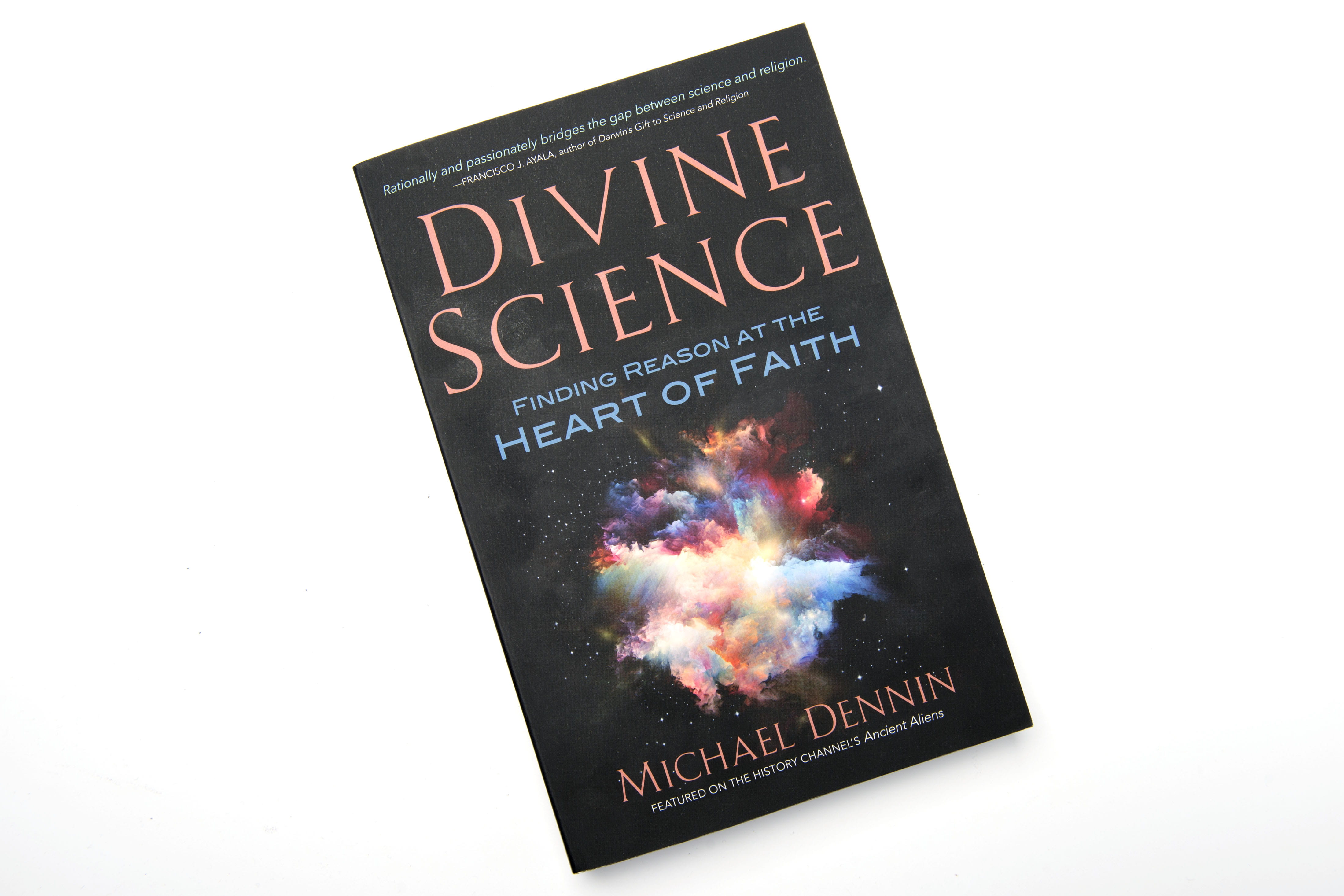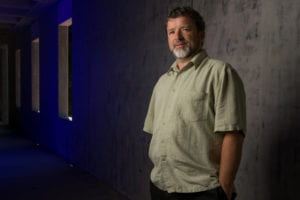Spiritual science
Physics professor’s book aims to bridge the divide between faith and reason

After teaching the science of zombies, superheroes and space aliens, it was perhaps inevitable that physicist Michael Dennin would turn his attention to another mysterious being: God.
The result is Divine Science, a new book that explores how the Big Bang theory, evolution and other scientific principles can actually deepen a person’s religious faith. Rather than view such concepts as antithetical to spirituality, believers should “embrace the sciences as another glimpse into the infinite,” says Dennin, vice provost for teaching and learning at the University of California, Irvine.

To drive home that argument, the physics & astronomy professor blends personal stories with tutorials on genetics, philosophy, quantum mechanics, Latin and more.
And, in keeping with his penchant for using pop culture references to help convey complex ideas, he describes God as “the ultimate superhero,” whose power is the ability to create the universe and all the physical laws within it – and who encompasses “the fullness of reality.”
A self-described “cradle Catholic” who grew up in Connecticut and studied physics at Princeton University and UC Santa Barbara, Dennin has long been fascinated with the worlds of faith and reason.
A few years ago, while chomping on a bowl of Cheerios and reading the morning newspaper, he began fuming over an article about scientists reportedly inducing religious epiphanies by stimulating certain parts of the brain. The story suggested that the research proved spiritual experiences were a product of the mind.
Such a conclusion isn’t supported by the evidence, Dennin grumbled.
“Well, maybe one day you can write a book about [it],” his wife replied.
“This is that book,” Dennin declares in Divine Science, which recently won first place in the faith and science category of the 2016 Catholic Press Association Book Awards.
Although the paperback is primarily aimed at a religious audience, he hopes the sometimes weighty nature of the text will also demonstrate to atheists and skeptics that Christians and other believers “can be as reflective, as critical and as sophisticated as even the most technical of scientists.”